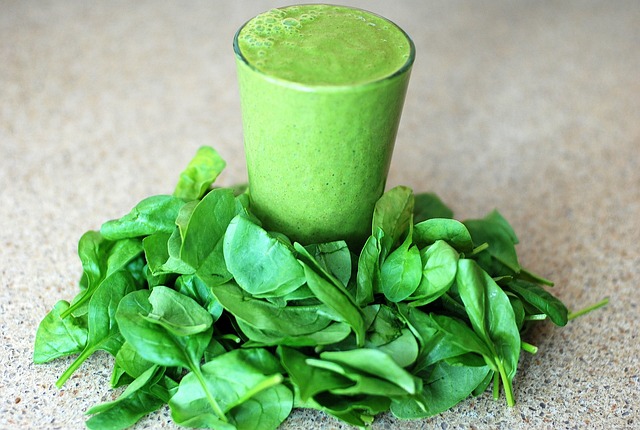Photo By NatureFriend
When I tell people I’m vegan, often the first question out of their mouths is, “Ok, so where do you get your protein?”
As soon as I hear this question, I do my usual eye roll and immediately know that I’m dealing with – well – someone who doesn’t know very much about plants. The idea that plant foods are somehow devoid of protein is nothing but a myth.
Myth #1: Plants are low in protein
Plant foods are generally abundant in protein. For example, lettuce gets 34% of its calories from protein, and broccoli gets 45% of its calories from protein. Spinach is 49%. Cauliflower is 40%. Celery is 21%. Beans range from 23% to 54% depending on the variety. Grains are 8% to 31%. Nuts and seeds are 8% to 21%. Fruits are the lowest at around 5-8% on average.
If you wanted to suffer from protein deficiency, you’d either have to seriously restrict total calories (i.e. starve yourself), or you’d have to eat a really messed up, unbalanced diet like nothing but low-protein junk foods and certain fruits. But in those cases, protein deficiency probably won’t be your biggest risk.
Personally I’ve never met anyone suffering from protein deficiency in the USA, vegan or otherwise. The much greater risk (in the USA at least) is overconsumption of protein.
Myth #2: Plant proteins are incomplete so they need to be combined
Another myth is the idea that you need to combine different plant foods to form complete proteins. The idea was that most plant foods only contained some of the essential amino acids, so you’d have to combine “incomplete” foods like beans and rice to form meals that contained complete proteins. This idea was put forth in the 1971 book Diet for a Small Planet by Frances Moore Lapp. It was a million-copy bestseller. Unfortunately, many people still aren’t aware that this theory was later found to be completely false, as Lapp herself recanted her original theory in later works that were far less popular. The truth is that most plant foods do contain all the essential amino acids, but furthermore, your body will store amino acids in a pool between meals – it doesn’t even need to get all the essentials in a single meal. So the theory of combining plant foods to form complete proteins isn’t even remotely correct. Of course, lifelong vegans already knew Lapp’s theory was wrong, as they weren’t suffering from protein deficiencies regardless of how they combined their meals.
Many people today are still under the mistaken assumption that getting enough protein from plants is difficult or impossible. I particularly love it when people explain to me why I should either be dead or suffering from protein deficiency symptoms. I haven’t eaten any animal protein in 8.5 years now, and I’ve never had any protein deficiency symtoms.
Plus I’m not dead. On the contrary, I feel fantastic.
So don’t worry about getting enough protein. Just eat your veggies, and you’ll be fine.
Related Quotes
“If you step back and look at the data, the optimum amount of red meat you eat should be zero.” ~Dr. Walter Willet
“The beef industry has contributed to more American deaths than all the wars of this century, all natural disasters, and all automobile accidents combined. If beef is your idea of “real food for real people” you’d better live real close to a real good hospital.” ~Neal Barnard, M.D.
“I find that low protein diets often contribute to improvement in patients with immune system problems … In fact, it would be hard to become deficient in protein in our country even if you tried.” ~Andrew Weil, M.D.
“It is absolutely healthier to replace red meat in the diet with fruits and vegetables.”~Steven Ferrel C.N.
Bliss Planet Comment
Americans have been mislead by the beef and dairy industries for long enough. The dairy industry designed the original food pyramid, not health minded nutritionists or doctors. Red meat should contain the following warning on the label: “Red meat contributes to heart disease and some forms of cancer.” It is absolutely healthier to replace red meat in the diet with organic fruits and vegetables – Period!






The idea that you need to eat meat to get enough protein is a myth. In fact, there are many plant-based sources of protein that are just as good, if not better, than meat.
Some of the best plant-based sources of protein include:
Beans
Lentils
Tofu
Tempeh
Edamame
Nuts
Seeds
Quinoa
Oatmeal
Whole grains
These foods are all high in protein and fiber, and they are also a good source of other nutrients, such as iron, calcium, and B vitamins.
If you are concerned about getting enough protein on a plant-based diet, there are a few things you can do. First, make sure you are eating a variety of plant-based foods. This will help you get a wide range of nutrients, including protein.
Second, you can try to include protein-rich foods at every meal. This will help you spread your protein intake throughout the day. Finally, you can consider taking a plant-based protein supplement. Protein supplements are a convenient way to get extra protein, and they can be helpful if you are having trouble getting enough protein from food alone.
If you are thinking about going vegan or vegetarian, don’t worry about getting enough protein. There are many plant-based sources of protein that are just as good, if not better, than meat. With a little planning, you can easily get all the protein you need on a plant-based diet.